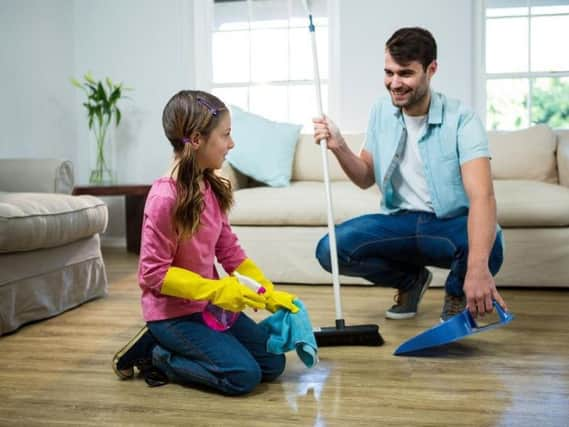Watchdog to crackdown on adverts showing women cleaning up and men failing at household tasks


The Advertising Standards Authority (ASA) said there was evidence to support stronger rules on the basis that harmful stereotypes "can restrict the choices, aspirations and opportunities of children, young people and adults".
The ASA's report Depictions, Perceptions and Harm concluded that while the regulator had a record of banning ads on grounds of objectification, inappropriate sexualisation and the suggestion that it was desirable for young women to be unhealthily thin, a "tougher line" was needed on ads that feature stereotypical gender roles, including those which mock people for not conforming.
Advertisement
Hide AdAdvertisement
Hide AdThe new standards will not ban all stereotypes, such as women cleaning or a men doing DIY jobs.
But ads that depict scenarios such as a woman having sole responsibility for cleaning up her family's mess or a man trying and failing to do simple parental or household tasks are likely to be banned, as would a campaign suggesting a specific activity is inappropriate for boys because it is stereotypically associated with girls and vice versa.
The new standards will come into force next year.
ASA chief executive Guy Parker said: "Portrayals which reinforce outdated and stereotypical views on gender roles in society can play their part in driving unfair outcomes for people.
"While advertising is only one of many factors that contribute to unequal gender outcomes, tougher advertising standards can play an important role in tackling inequalities and improving outcomes for individuals, the economy and society as a whole."
Advertisement
Hide AdAdvertisement
Hide AdElla Smillie, lead author of the ASA's report, said: "Our review shows that specific forms of gender stereotypes in ads can contribute to harm for adults and children.
"Such portrayals can limit how people see themselves, how others see them, and limit the life decisions they take.
"Tougher standards in the areas we've identified will address harms and ensure that modern society is better represented."
The ASA's move follows last month's announcement of a Unilever-led alliance of major brands and organisations aiming to end gender stereotyping in advertising.
Advertisement
Hide AdAdvertisement
Hide AdThe Unstereotype Initiative, sponsored by UN Women, also includes Facebook, Google, Alibaba and Mars, as well as industry bodies such as the UK's Institute of Practitioners in Advertising (IPA), and aims to work against stereotypical gender portrayals such as women being presented as cooks in family adverts.
Last year Unilever announced its #Unstereotype campaign to move to "progressive portrayals of people in our ads", arguing that many of the depictions consumers saw across industry advertising were "stereotypical and outdated" and "represent a view of the world our consumers don't aspire to or relate to".